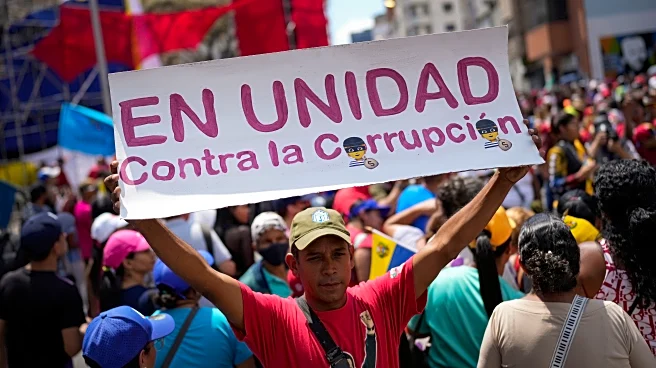Rapid Read • 7 min read
Senate Health, Education, Labor and Pensions Committee Chairman Bill Cassidy has called for the indefinite postponement of an upcoming meeting of the Advisory Committee on Immunization Practices (ACIP) due to allegations of biased decision-making and ongoing upheaval at the Centers for Disease Control and Prevention (CDC). The ACIP, which plays a crucial role in vaccine policy, is scheduled to discuss various vaccines, including those for COVID-19 and Hepatitis B, at its September meeting. Cassidy's call for postponement comes amid significant changes in CDC leadership, including the firing of Director Susan Monarez and the resignation of several top officials. These changes have raised concerns about the legitimacy of the ACIP's recommendations, which impact insurance coverage and vaccine administration practices.
AD
The upheaval at the CDC and the potential postponement of the ACIP meeting have significant implications for public health policy in the United States. The ACIP's recommendations influence vaccine schedules and insurance coverage, affecting millions of Americans. The leadership changes and allegations of bias could undermine public trust in the CDC and its vaccine policies. Furthermore, the involvement of Robert F. Kennedy Jr., known for his anti-vaccine stance, in reshaping the CDC's direction raises concerns about the future of vaccine policy and public health safety. The situation highlights the tension between political influence and scientific integrity in public health decision-making.
The next steps involve potential congressional oversight and scrutiny of the CDC's leadership and decision-making processes. The Senate Finance Committee is expected to question Robert F. Kennedy Jr. about the recent changes and their impact on public health policy. Additionally, the ACIP's future meetings and recommendations may face increased scrutiny from lawmakers and public health experts. The outcome of these developments could shape the CDC's role in vaccine policy and its ability to operate independently of political influence.
AD
More Stories You Might Enjoy













